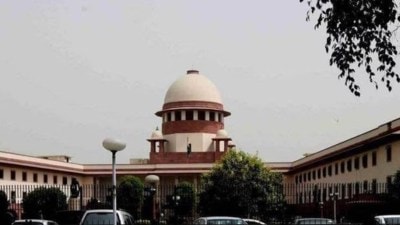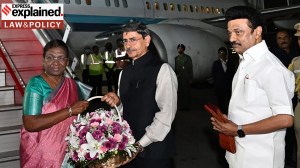Reclaim the poet’s dreams
India whose place in the world is too narrow can ill afford to ignore a poet (Iqbal) whose poetry has such universal value,” cautioned ...

India whose place in the world is too narrow can ill afford to ignore a poet (Iqbal) whose poetry has such universal value,” cautioned Gurudev Tagore. Sadly, India has still not heeded Gurudev’s warning. Or how else can one explain the nation’s collective amnesia on Iqbal Day (Allam Iqbal’s death anniversary on April 21)?
Tennyson is England’s cultural icon. Iranian embassies around the world pay tribute to Firdausi every year. But Iqbal, whom Sarojini Naidu called “the poet laureate of Asia”, doesn’t get a mention in the media — either public or private — on his death and birth anniversaries in the country of his birth. In contrast, Pakistan, which hijacked Iqbal as its “founder-thinker”, celebrates Iqbal Day as a festival.
It’s an irony. Iqbal not only sang paeans to India’s greatness in poems like Saare jahan se achcha, Hindustani Bachchon Ka Geet and Himalaya, but also showed how secular he was. “Pathar ki moorton mein samjha hai tu khuda hai/khake watan ka mujhko har zarra devta hai (You think God is in stone/to me every particle of the nation’s dust is a deity),” he declares in Naya Shivala (New Temple).
Unfortunately, India is punishing the poet Iqbal for the “misdemeanour” of Iqbal the politician. The communally inclined, both in India and Pakistan, refer to Iqbal’s presidential address at the Muslim League’s 1930 session in Allahabad. In his speech, he had proposed a separate Muslim province (within India) in the Muslim-dominated northwest. However, the votaries of Pakistan saw it as a legitimisation of the diabolical two-nation theory.
Iqbal made many attempts to clarify his stand over the years. The most notable of these was in a letter to his friend Raghib (March 6, 1934). Disturbed at English author-critic Edward Thompson’s review of his book, Iqbal wrote to Raghib: “Please also note that the author (Thompson) of this review confuses my scheme with ‘Pakistan’. I propose to create a Muslim province within the Indian Federation, the Pakistan scheme proposes a separate federation of Muslim provinces in the northwest of India outside the Indian Federation.”
Still, to the communal Iqbal is a villain, the very originator of the idea of Pakistan. They endlessly flog Iqbal, but conveniently forget that the great nationalist leader Lala Lajpat Rai, through several articles in the Tribune (published in 1924), had mooted the division of Punjab into Hindu-dominated and Muslim-dominated areas. Rafiq Zakaria, in his seminal work Iqbal: The Poet and the Politician, mentions a delightful discussion between Frank Moraes and M.A. Jinnah during the Second Round Table Conference in London. When at the dinner Moraes mentioned Iqbal’s proposal to Jinnah, the latter dismissed it, saying: “My dear! Don’t you know that Iqbal is not a politician. He is a poet and poets dream.”
‘‘Pakistan needed a Father of the Nation. It saw him in Iqbal, the poet-philosopher of modern Islam. Jinnah, the fanatic, the pork-eating Muslim, might have become Pakistan’s Qaied-e-Azam, but Iqbal was the obvious choice to become its philosopher and guide,’’ points out Mumbai-based scholar Abdul Sattar Dalvi whose new book on Iqbal is slotted for early publication.
When India ignores Iqbal, it only lends credence to Pakistan’s lie about the poet’s thoughts. We have denied Iqbal the honour he deserves. If he talks of Islam’s historic role in shaping the civilisation’s destiny, he also calls Ram the Imam-e-Hind (leader of India). In his long poem Javed Nama, the poet pays glowing tributes to Bhartrihari, the great Sanskrit poet and a contemporary of Kalidasa. Iqbal recognises equally the services of saints like Chisti and Nanak.
To disown such a great poet is a Himalayan blunder.
Photos




- 01
- 02
- 03
- 04
- 05



























